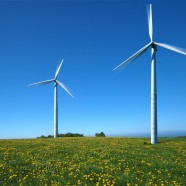
In the 70’s it was called ecology. Today it’s the green movement. Whatever you call it, energy conservation has the lofty goal of making the earth a better place to live by using less energy. Energy conservation has been the watchword for decades, and yet we’re still wasting money and using more power than ever before. Since cutting back and using alternate sources of power can result in large energy savings, why aren’t more people doing everything they can to reduce their energy usage?
It’s all about the numbers. The more people who join in trying to conserve energy, the better off we’ll be. The participants benefit, and society does as well. The problem is convincing more people to take the time and make the effort to work toward more energy efficiency.
It’s Got a Bad Name
One of the biggest problems is the perception of the green movement. Just mention “living a greener life” and many people will roll their eyes, visualizing vegan hipsters or old-school hippies. The message needs to be more about energy savings, and less about energy conservation. People are naturally more interested in benefits to themselves than those for society. Appealing to people’s better instincts is a hard way to convince them to act.
There Aren’t Enough Good Examples
It’s the simple things that count. One person pulling out their reusable grocery bags is often looked on as an oddball. But when it becomes the trendy thing to do, the masses fall right in line. The more people who practice energy conservation, the more normal and natural it will appear. The key is getting that first snowball made so that it can roll down the hill.
It Needs to Be Easy
Right now the energy savings option isn’t always the easy one to take. When three marked trash cans are placed in a row, people will separate their trash. If there’s one large can with a small one beside it, most of the garbage gets thrown away together. If people are getting home renovations, installing wiring and appliances meant for energy efficiency, it makes it simple to make energy savings a daily activity. If people have to go out of their way to cut back, though, it’s less likely to happen. People have their daily habits, and changing them should take the smallest steps possible for it to be successful.
Free Methods Aren’t Emphasized More
The mainstream media needs to make energy conservation a matter of common knowledge, not present it in occasional articles on odd ways to save money. Among the great free ways to save energy as well as money are:
- Eating more vegetarian meals
- Walking or bike riding instead of using a car
- Replacing incandescent bulbs with CFCs or LEDs
- Buying used goods instead of used
Many people see these as oddball, extreme ways of saving money. It needs to be seen as the natural way to live, not anything out of the mainstream.
Alternative Energy is Too Expensive
People vote with their wallets. If an electric car will cost $9,000 to replace batteries that will run dry in five years, they’re going to think twice while comparison shopping. Wind, solar, nuclear, and wave power all have their fans, but the political opponents are vocal and the cost of the startup technology is still much higher than traditional fossil fuels.
Green Technology Often Isn’t
Even with the best of intentions, people who use green technology can unknowingly be causing more pollution and using more energy than before the changeover. Photovoltaic cells are a great way to create inexpensive electricity, but reports are coming in about factories that create huge amounts of pollution while making those cells. Ethanol is supposed to help reduce our dependence on fossil fuels, but growing enough corn to power even a small percentage of cars can take a huge amount of water, and dump pesticides and fertilizers into the local groundwater. Getting green technology right is a balancing act, and one which manufacturers haven’t quite perfected.

Recent Comments